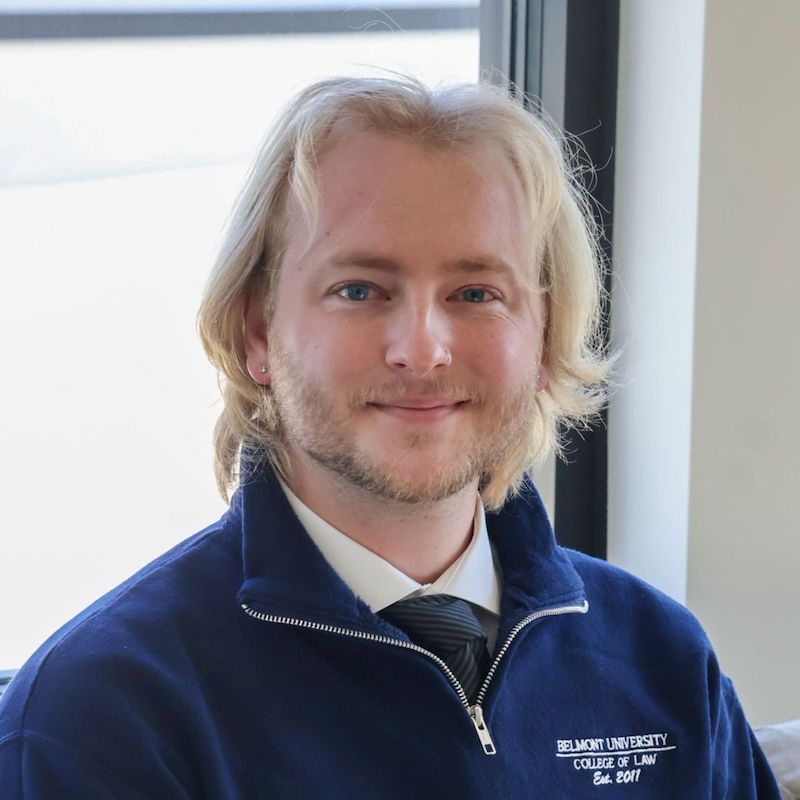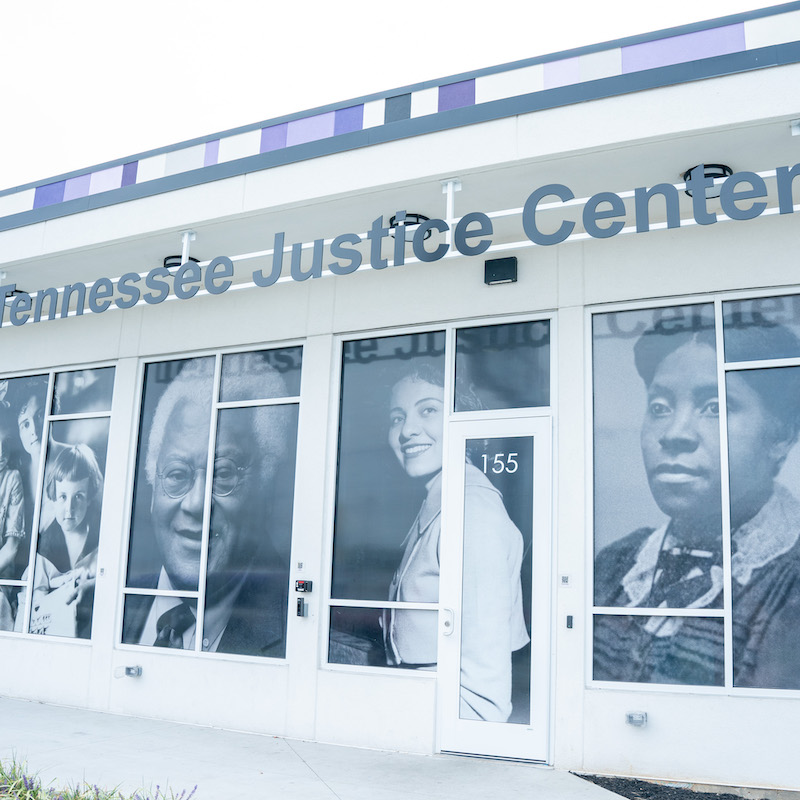Experiential learning meets purpose-driven advocacy in the nation’s health care city
At Belmont University College of Law, learning doesn’t stop at the classroom door. Through its robust experiential learning program, students gain hands-on legal experience that prepares them for the real-world challenges of practicing law.
That preparation takes on added meaning in Nashville’s extensive health care landscape. Here in the nation’s health care capital, Belmont Law students are positioned to work at the intersection of policy, health care access and justice. The Healthcare Justice Clinic, launched in partnership with the Tennessee Justice Center, exemplifies this approach.
Four Belmont Law students were selected for an externship opportunity in the clinic’s first year. The experience has been highly formative in the professional journey of second year law students Will Fitzpatrick and Liam Sweeney. Working in the Healthcare Justice Clinic and in support of TJC, these two have gained invaluable experience by advocating for vulnerable populations and helping them navigate complex public benefits systems.
Using Law for Good
 The externship opportunity with the embedded Healthcare Justice Clinic perfectly complemented Fitzpatrick’s desire to use the law for good. He was drawn to the legal profession after witnessing his partner's efforts to push for better conditions at a major tech company and after graduating from Belmont with an undergraduate degree.
The externship opportunity with the embedded Healthcare Justice Clinic perfectly complemented Fitzpatrick’s desire to use the law for good. He was drawn to the legal profession after witnessing his partner's efforts to push for better conditions at a major tech company and after graduating from Belmont with an undergraduate degree.
“There’s definitely a need for legal support where people don’t have the resources to advocate for themselves,” he said. “I want to step in to fulfill that need.”
Belmont’s experiential learning program has allowed Fitzpatrick to directly work in public service, even as a law student. He previously worked on the Eviction Right to Counsel Project with the Legal Aid Society of Middle Tennessee and the Cumberlands. Now, the Healthcare Justice Clinic is showing him another area where people face major challenges: health care.
Through the clinic, law students help clients navigate the often confusing and inconsistent process of getting and keeping Supplemental Nutrition Assistance Program (SNAP) and TennCare benefits — support that is crucial because these systems are notoriously difficult to handle alone.
With a limited practice license, Fitzpatrick was also able to directly advise clients and even prepare to represent clients in hearings. “We’re assigned our own caseloads, and we communicate directly with clients,” he said. “The impact is immediate. Someone keeping their SNAP benefits can mean their family eats this week.”
Connecting to the Human Side of Law
 Liam Sweeney, another 2L in the clinic’s inaugural cohort, credits the experience with reinforcing his commitment to public service. “I was raised in a service-oriented household, and this clinic grounded me again in the why behind what I’m doing,” he said.
Liam Sweeney, another 2L in the clinic’s inaugural cohort, credits the experience with reinforcing his commitment to public service. “I was raised in a service-oriented household, and this clinic grounded me again in the why behind what I’m doing,” he said.
As the students navigate unclear eligibility guidelines, inconsistent benefit terminations and communication barriers between clients and state agencies, the work is both challenging and eye-opening.
“You realize how overwhelming it can be for clients to even get access to these services,” Sweeney noted. “Sometimes the biggest legal challenge is making the system understandable and accessible.”
Through weekly classroom discussions — a distinctive feature of the clinic experience — students gain critical insight into both the policies shaping public benefits and the human realities behind them. They’re kept up to date on evolving regulations that directly affect their cases, while also exploring how to navigate the emotional and psychological challenges their clients may be facing. These conversations equip students not only with legal knowledge but also use trauma-informed lawyering methods as a tool to support people during some of the most difficult moments in their lives.
“You’re not seeing people at their best,” Fitzpatrick explained. “You’re seeing them in crisis. The clinic taught me how to meet them where they are, with empathy, while also protecting my own well-being as a future attorney.”
Experiential Learning at Belmont Law
Belmont’s experiential learning model prepares students for real-world legal practice by giving them practical exposure early on — through field placements, externships and community clinics — while they also progress through foundational legal coursework.
The TJC, meanwhile, provides not only case-level support but also tackles systemic issues through litigation and policy work. That dual mission is something Fitzpatrick sees as essential. “We’re helping individual clients, but the TJC also works to fix the systems causing these issues in the first place.”
For both students, the experience has helped shape the kind of attorneys they want to become. “This clinic showed me that legal work isn’t just about lawsuits or courtrooms,” Sweeney said. “Sometimes it’s about making sure someone’s paperwork gets filed so they can access medical care. It’s deeply personal, and it’s deeply important.”
Discover more about the programs in this story.

